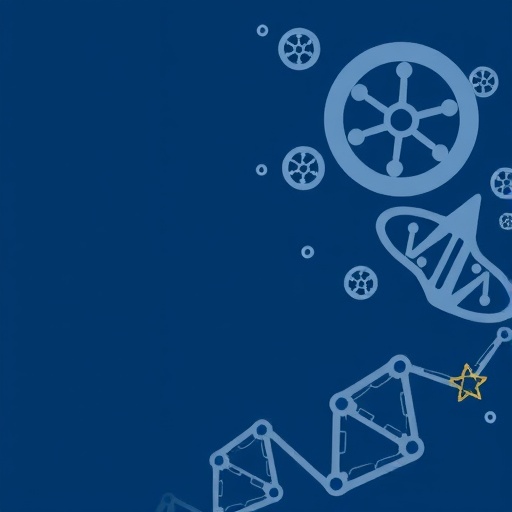In the realm of engineering education, the integration of experiential learning paradigms has gained substantial traction, particularly in fields where human-centered design is paramount. A recent study authored by Tennant, Howcroft, and Mercer takes this notion a step further by investigating the efficacy of the Biomedical Stakeholder Café model within capstone design projects. This innovative approach not only enriches the learning experience for students but also bridges a critical gap between engineering education and real-world medical application. By closely analyzing the perceptions of both students and stakeholders involved, the research sheds light on how collaborative environments can foster significant educational and professional growth.
The research delves into the underlying principles that guide effective experiential learning environments. The Biomedical Stakeholder Café serves as a unique platform where students engage directly with real-world biomedical challenges, allowing them to apply theoretical knowledge to practical scenarios. This dynamic interaction promotes a deeper understanding of both engineering principles and human-centric design, ultimately enhancing the students’ ability to empathize with end-users. It is through these symbiotic relationships that students can cultivate not only technical skills but also soft skills critical for success in the profession.
At the heart of this educational transformation lies the recognition of diverse stakeholder perspectives as integral to the design process. The study emphasizes the importance of engaging stakeholders, including healthcare professionals, patients, and industry experts, in conversations around capstone projects. By doing so, students are exposed to a myriad of viewpoints that inform their designs and decision-making processes. This rich tapestry of feedback helps in iterating designs that are more aligned with actual user needs and requirements, thereby driving more successful outcomes.
The research methodology employed by the authors is notable for its thoroughness and rigor. By collecting qualitative and quantitative data through surveys, interviews, and direct observations, the study paints a comprehensive picture of the experiences shared by both students and stakeholders. This dual-pronged approach allows for triangulation of data, ensuring that findings are robust and representative of the lived experiences within the Biomedical Stakeholder Café model. The nuanced insights gained from this research provide valuable implications for the future of engineering education.
An important aspect highlighted in the research is the role of mentorship within this experiential learning framework. Stakeholders not only contribute expertise but also serve as mentors for students navigating the complexities of real-world biomedical problems. This mentorship fosters a supportive learning environment where students are encouraged to take risks, explore innovative solutions, and learn from failures. The presence of seasoned professionals guiding students throughout their capstone projects can transform the learning experience from a purely academic endeavor to one steeped in practical application and real-world relevance.
The regular interaction between students and stakeholders also cultivates an atmosphere of accountability. Students learn the significance of their work not merely as an academic requirement but as a contribution to society. This heightened sense of responsibility can be a powerful motivator, driving students to strive for excellence in their designs. Moreover, when students witness how their projects can directly impact the lives of users, it often leads to a renewed passion for engineering and problem-solving.
Feedback from both participants in the study has shown a marked increase in student engagement and enthusiasm for projects completed under the Biomedical Stakeholder Café model. This enthusiasm is further reflected in their academic performance and the quality of projects produced. As students engage in meaningful dialogue with stakeholders, they become more invested in their work, expressing creativity and innovation that may not be as evident in traditional educational settings. Experiential learning not only fosters technical skills but also ignites a passion for lifelong learning, preparing students for future endeavors.
A key takeaway from the research is the recognition that learning does not occur in isolation. The study advocates for the idea that collaborative learning environments can yield a richer educational experience. By breaking down the barriers separating academia and industry, the Biomedical Stakeholder Café model exemplifies how interdisciplinary collaboration can innovate and elevate engineering education. This shift towards integrating stakeholder perspectives signifies a broader trend that is likely to shape the future of engineering curriculum and pedagogy.
Moreover, the authors provide a comprehensive analysis of potential challenges in implementing such models. They acknowledge that while the benefits are substantial, there are logistical hurdles associated with stakeholder engagement in academic settings. These include availability, scheduling conflicts, and differing expectations from academia and industry. Addressing these challenges requires meticulous planning and a commitment from educational institutions to prioritize relationships with stakeholders as part of the educational process.
In conclusion, Tennant, Howcroft, and Mercer’s research demonstrates that enhancing experiential engineering education through stakeholder engagement is not just beneficial but necessary. The insights gathered from the students and stakeholders provide valuable lessons for educators seeking to enrich their curricula. As we navigate an increasingly complex world, the ability to collaborate across disciplines, engage with diverse perspectives, and prioritize human-centered design will be essential for future engineers. This study presents a compelling case for adopting innovative educational models that not only prepare students for technical proficiency but also equip them with the empathy and insight necessary to address the challenges faced within the biomedical field.
By amplifying student and stakeholder voices, the Biomedical Stakeholder Café model sets a precedent for future inquiry and development within engineering education. As more institutions recognize the value of experiential learning, this research serves as a catalyst for transforming capstone courses and creating a generation of engineers equipped to make meaningful contributions to society.
Subject of Research: Enhancing experiential engineering education through stakeholder engagement in biomedical design projects.
Article Title: Enhancing Experiential Engineering Education: Student and Stakeholder Perceptions of the Biomedical Stakeholder Café for Human-Centered Capstone Design.
Article References:
Tennant, R., Howcroft, J. & Mercer, K. Enhancing Experiential Engineering Education: Student and Stakeholder Perceptions of the Biomedical Stakeholder Café for Human-Centered Capstone Design.
Biomed Eng Education (2025). https://doi.org/10.1007/s43683-025-00204-7
Image Credits: AI Generated
DOI: https://doi.org/10.1007/s43683-025-00204-7
Keywords: Engineering Education, Human-Centered Design, Experiential Learning, Stakeholder Engagement, Biomedical Engineering.




